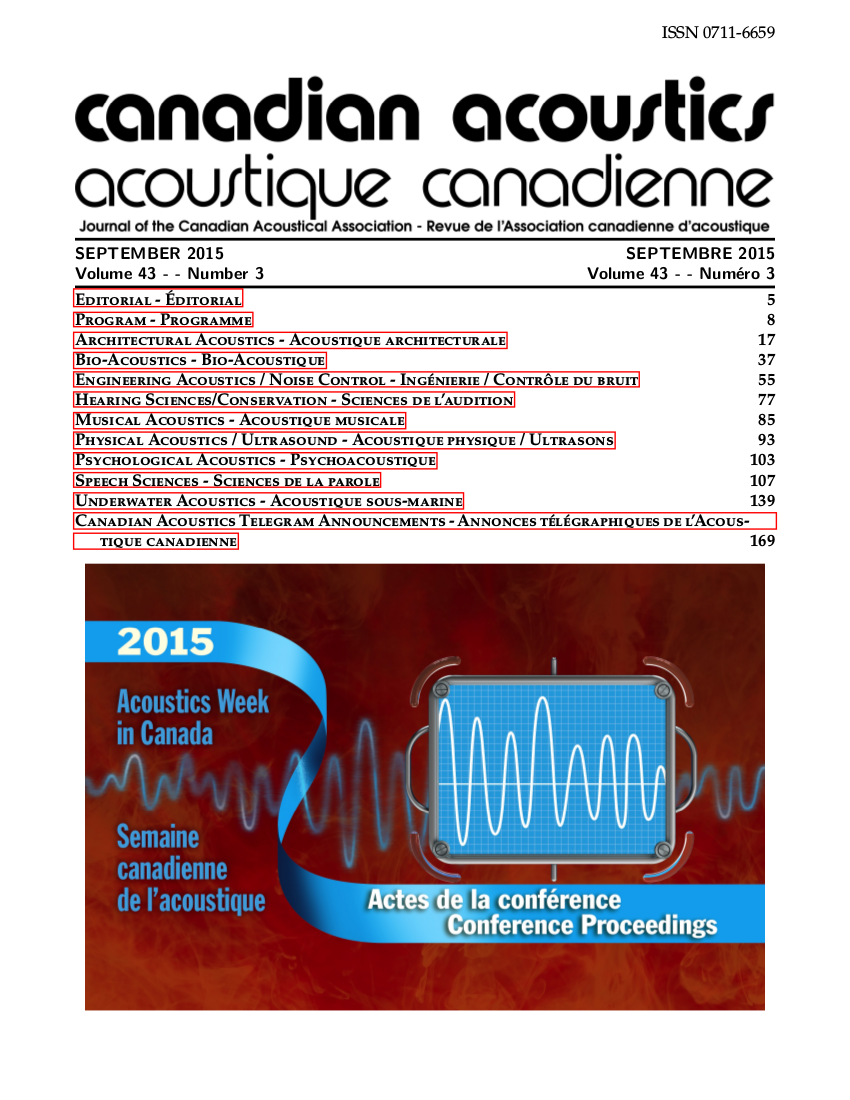Efficiency of Trans-dimensional Bayesian Inference for Geoacoustic Inversion
Abstract
This paper considers the efficiency of trans-dimensional (trans-D) Bayesian inference methods applied to seabed geoacoustic inversion. Trans-D inversion is applied to sample the posterior probability density over geoacoustic parameters for a variable number of layers, providing seabed-profile estimates with uncertainties that include the uncertainty in the model parameterization. However, the approach is computationally intensive. Sampling efficiency is largely determined by the proposal schemes which are applied to generate perturbed values for existing parameters and for new parameters assigned to layers added to the model. Perturbations of existing parameters are considered in a principal-component space based on an eigen-decomposition of the unit-lag parameter covariance matrix (computed from the history of sampled models, a diminishing adaptation). The relative efficiency of proposing new parameters from the prior versus a Gaussian distribution focused near existing values is examined. Parallel tempering, which employs a sequence of interacting samplers in which the likelihood function is successively relaxed, is also considered as a means to increase the acceptance rate of new layers. The relative efficiency of various proposal schemes is compared through repeated inversions with a pragmatic convergence criterion. Results are presented for inversions of simulated and measured seabed reflection data.
Additional Files
Published
How to Cite
Issue
Section
License
Author Licensing Addendum
This Licensing Addendum ("Addendum") is entered into between the undersigned Author(s) and Canadian Acoustics journal published by the Canadian Acoustical Association (hereinafter referred to as the "Publisher"). The Author(s) and the Publisher agree as follows:
-
Retained Rights: The Author(s) retain(s) the following rights:
- The right to reproduce, distribute, and publicly display the Work on the Author's personal website or the website of the Author's institution.
- The right to use the Work in the Author's teaching activities and presentations.
- The right to include the Work in a compilation for the Author's personal use, not for sale.
-
Grant of License: The Author(s) grant(s) to the Publisher a worldwide exclusive license to publish, reproduce, distribute, and display the Work in Canadian Acoustics and any other formats and media deemed appropriate by the Publisher.
-
Attribution: The Publisher agrees to include proper attribution to the Author(s) in all publications and reproductions of the Work.
-
No Conflict: This Addendum is intended to be in harmony with, and not in conflict with, the terms and conditions of the original agreement entered into between the Author(s) and the Publisher.
-
Copyright Clause: Copyright on articles is held by the Author(s). The corresponding Author has the right to grant on behalf of all Authors and does grant on behalf of all Authors, a worldwide exclusive license to the Publisher and its licensees in perpetuity, in all forms, formats, and media (whether known now or created in the future), including but not limited to the rights to publish, reproduce, distribute, display, store, translate, create adaptations, reprints, include within collections, and create summaries, extracts, and/or abstracts of the Contribution.


